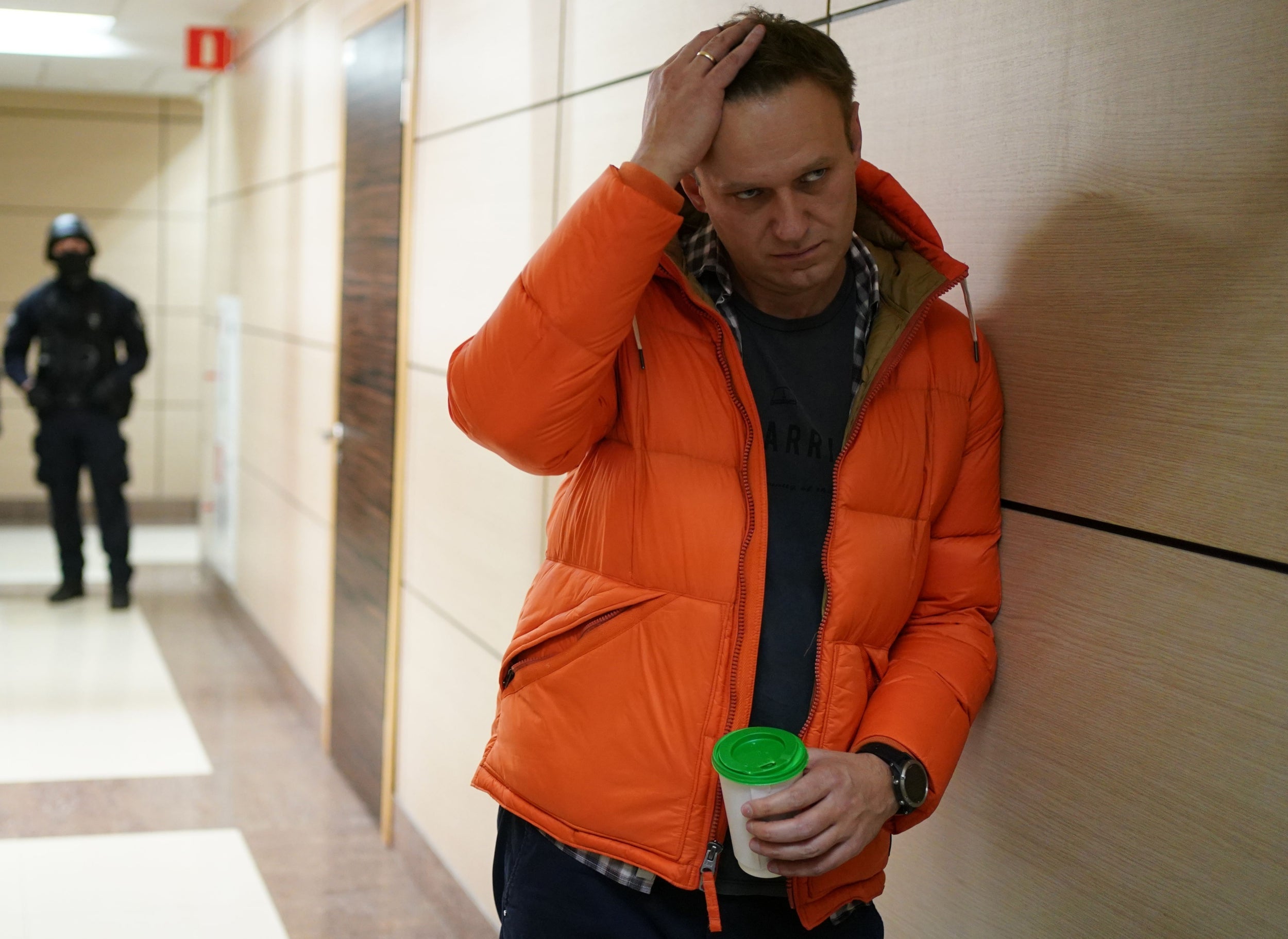Russia opposition leader arrested and aide ‘abducted’ for military service in crackdown on Kremlin foes
‘This is a kidnapping,’ says soldiers' rights activist. ‘Unfortunately, it’s part of a growing trend of lawless behaviour by the Ministry of Defence’

Your support helps us to tell the story
From reproductive rights to climate change to Big Tech, The Independent is on the ground when the story is developing. Whether it's investigating the financials of Elon Musk's pro-Trump PAC or producing our latest documentary, 'The A Word', which shines a light on the American women fighting for reproductive rights, we know how important it is to parse out the facts from the messaging.
At such a critical moment in US history, we need reporters on the ground. Your donation allows us to keep sending journalists to speak to both sides of the story.
The Independent is trusted by Americans across the entire political spectrum. And unlike many other quality news outlets, we choose not to lock Americans out of our reporting and analysis with paywalls. We believe quality journalism should be available to everyone, paid for by those who can afford it.
Your support makes all the difference.Russian authorities mixed the traditional and the shocking this week with a crackdown on Kremlin foe Alexei Navalny and his allies.
The opposition leader was arrested following a raid at his Moscow offices shortly after noon on Thursday. Using power tools to gain entry, officers confiscated laptops and other electronic equipment. According to Mr Navalny, the raid was linked to his refusal to comply with a court order and delete an investigation into prime minister Dmitry Medvedev from his YouTube site.
The arrest itself was not unusual: over the last calendar year, Mr Navalny has spent one in every eight days in police cells. But it followed the more extraordinary news that one of his employees had been seized at his home and dispatched to a remote military base in the Arctic.
Ruslan Shaveddinov, 23, was detained on Monday night at his home in Moscow. Colleagues only raised the alarm upon discovering the door of his apartment had been forced open. Mr Shaveddinov had not been able to contact either them or a lawyer: his mobile phone was mysteriously disabled.
Before his own arrest three days later, Mr Navalny suggested that the order to arrest Mr Shaveddinov came from the very top.
“It seems Putin put together the operation to isolate our Ruslan,” Mr Navalny wrote on Twitter. “His SIM card was blocked, the security service broke down his door and he was whisked away on several planes.”
For many hours, there was no news about Mr Shaveddinov’s whereabouts. The first clues came from social media channels with close links to the security services. These published footage showing the activist being led with his belongings into a minivan with a “VIP” sign. The snow on the roads – the winter in European Russia is unseasonably warm – suggested he was somewhere in the Russian north.
Eventually, on Tuesday, Mr Shaveddinov was declared found, 3,500 miles away at an air defence base in the Arctic archipelago of Novaya Zemlya.
Novaya Zemlya is known for its severe, windswept climate; the home of polar bears, ice and permafrost. It was also the location for tests of the largest atomic bomb in history in 1961. The tests happened at the north of the archipelago. The base where Mr Shaveddinov has been sent is at the southern tip, and specialises in Russia’s top-of-the-range S-300 and S-400 anti-aircraft systems.
When it finally came round to admitting details, the Kremlin was unapologetic. The form of the conscription did not "leave a shadow over the Russian army", spokesperson Dmitry Peskov insisted.
While forced conscription is unusual in Moscow, it is not the first time that authorities have used strong-arm tactics against the opposition. In 2007, for example, Oleg Kozlovsky, now a researcher for Amnesty, was seized and sent away for military service. He successfully appealed against the conscription, however, and was freed two and a half months later.
Mr Kozlovsky told The Independent that he had heard of several cases similar to his own, but suggested that the “outrageous” nature of this week’s operation – the Arctic destination, timing and form of arrest – was designed to shock.
“Breaking down doors is what you do with dangerous criminals,” he said.

One year’s military service is compulsory for all Russian males aged 18 to 28, but exemptions are possible. At the time of his forced conscription, Mr Shaveddinov had lost an appeal against the draft on medical grounds.
Valentina Melnikova, the head of the Russian Union of Committees of Soldiers' Mothers, was critical of the tactics used by Mr Shaveddinov and his lawyers. He should have taken precautions, she said – for example by living elsewhere for a time. That said, authorities had “clearly” sidestepped due process in sending Mr Shaveddinov to the Arctic.
“The authorities did not do things by the book, which makes this a kidnapping,” she said. “Unfortunately, it’s part of a growing trend of lawless behaviour by the Ministry of Defence.”
According to Ms Melnikova, a culture of violent bullying and criminal behaviour is also on the rise. In October, a Russian conscript killed eight of his fellow soldiers after apparently being subjected to bullying by his commanders. It was but the most shocking of dozens of such cases, she said.
Given his political status, however, Mr Shaveddinov will likely avoid such humiliation.
“The commanders will do everything they can to avoid scandals … and to keep him away from the missiles,” his fellow activist Oleg Kozlovsky suggested.
“That said, I imagine Putin won’t be flying over the Arctic Ocean any time soon.”
Join our commenting forum
Join thought-provoking conversations, follow other Independent readers and see their replies
Comments